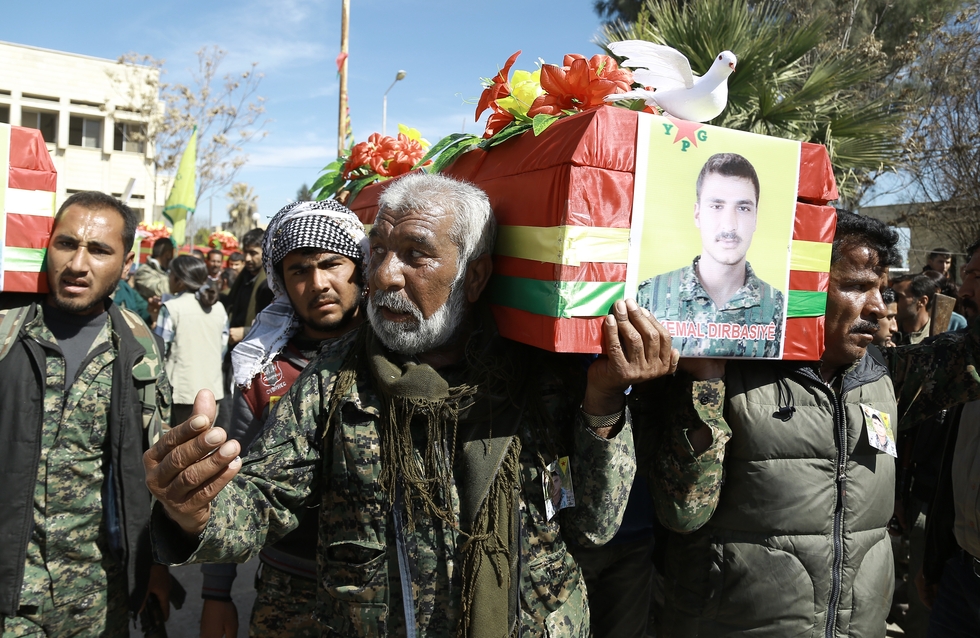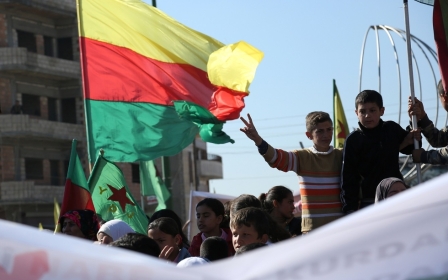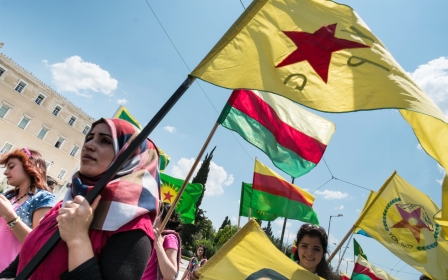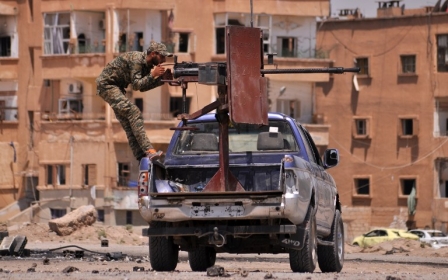Arab League rejects Kurdish federation in Syria

The Arab League has refused to recognise the newly declared Kurdish federation in northern Syria, adding its rejection to that of the Syrian government and opposition.
In a statement released on Monday, the Arab League stressed that the “unification of Syrian territories” is an important factor in achieving stability in the region.
Several Syrian-Kurdish parties announced the federation last Thursday, which caused the Syrian government and opposition to promptly express their rejection.
Ahmed Ben Helli, the league's deputy secretary-general, told reporters that “the Arab League rejects such separatist calls that threaten the unity of Syria”.
“One of the Arab League’s fundamental principle in regard to the Syrian conflict is based on the country’s unity and territorial integrity," Ben Helli said, adding that some of the Kurds did not support the federation.
Salih Muslim Mohammed, the co-leader of the Democratic Union Party (PYD), the largest Kurdish party in Syria, last week told MEE that the federation should not be seen as an autonomous Kurdistan region, but rather a blueprint for a future decentralised and democratic country.
“There is no autonomous Kurdish region, so there is no question of recognising it or not," he said. “It is part of a democratic Syria, and it might expand all over Syria. We want to decentralise Syria, in which everyone has their rights."
"The name is not important, we call it a democratic Syrian federalism,” he told Middle East Eye.
Syria’s membership in the Arab League has been suspended since November 2011 over President Bashar al-Assad’s failure to end government crackdowns on protests.
The US State Department last week had expressed similar views and said that it would not recognise a unified autonomous region for the Kurds in Syria, nor accept the dismantling of Syria.
Washington had supported the Syrian Kurds in their fight against the Islamic State in Kurdish areas.
However Kurdish parties were not invited to participate in the ongoing Geneva negotiations between the Syrian government and the opposition delegations.
Kurds make up more than ten percent of Syria's population, and suffered from marginalisation for decades before the outbreak of the conflict in 2011. A large percentage of them are denied Syrian nationality, and were prevented from learning their language or even to revive traditions like the Nowruz holiday celebrations.
Kurdish forces, who have proved effective in countering IS in the north and northeast of Syria with the support of the international coalition air strikes, aim to link their three districts - Hasaka, Afrin and Kobane - in order to establish autonomous rule similar to Iraqi Kurdistan.
After the gradual withdrawal of the Syrian government forces from these areas in 2012, the Kurds announced the establishment of an interim self-administration in the three areas in the north of Syria.
Middle East Eye propose une couverture et une analyse indépendantes et incomparables du Moyen-Orient, de l’Afrique du Nord et d’autres régions du monde. Pour en savoir plus sur la reprise de ce contenu et les frais qui s’appliquent, veuillez remplir ce formulaire [en anglais]. Pour en savoir plus sur MEE, cliquez ici [en anglais].




